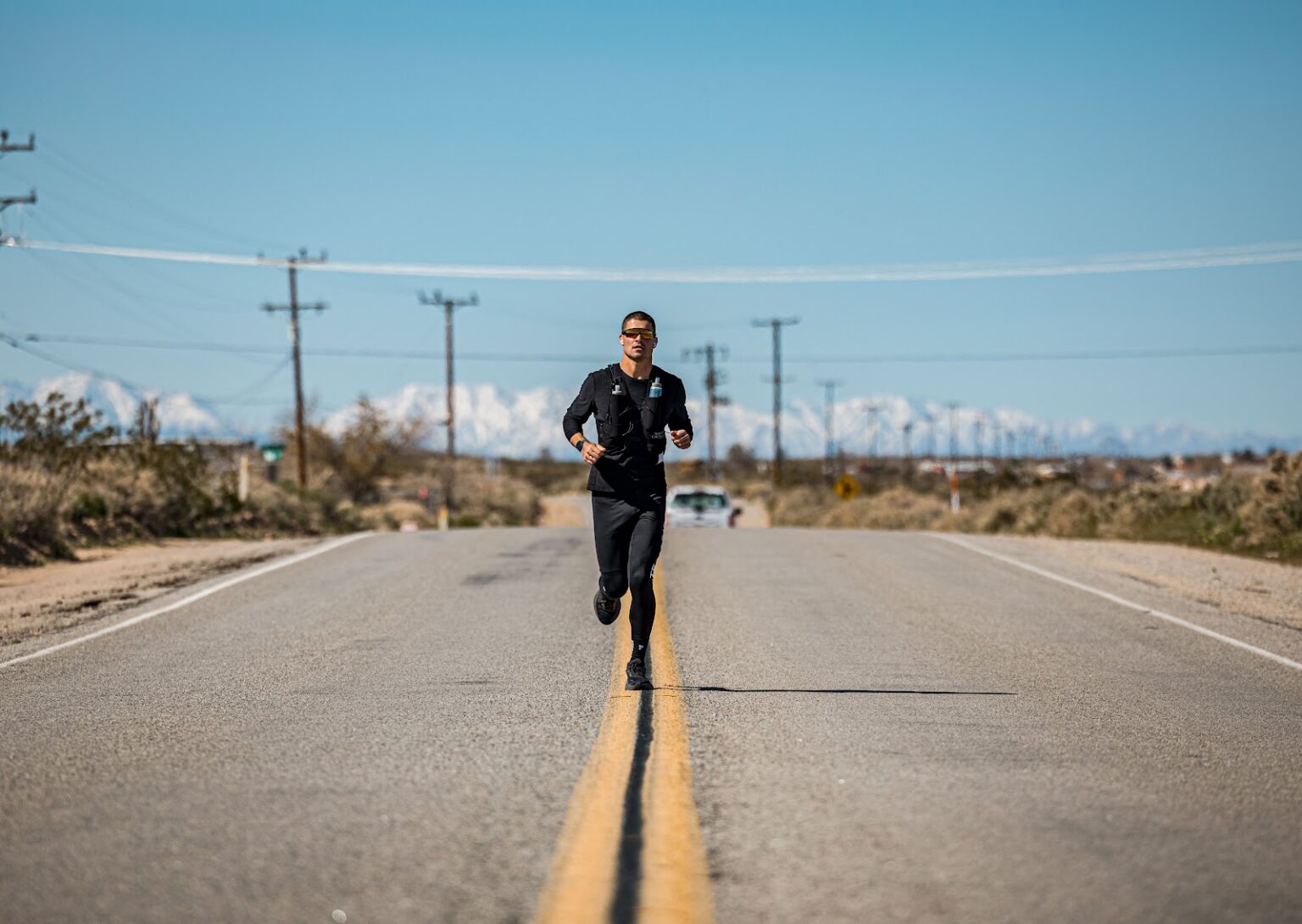William Goodge has claimed a noteworthy achievement in the world of ultrarunning, having completed the width of Australia in just over 34 days and 9 hours. This performance not only marks a new world record but also indicates the escalating demands and expectations of endurance events in challenging environments. Goodge’s journey across the 3,800 kilometers (approximately 2,361 miles) from Cottesloe Beach in Perth to Bondi Beach in Sydney involved running an impressive daily average of around 100 kilometers, equating to about two-and-a-half marathons each day.
For ultrarunners and trail enthusiasts, Goodge’s accomplishment offers insights into the physical and mental fortitude required for long-distance events, particularly those in rugged terrains, where pacing becomes crucial. Training plans should incorporate high-volume weeks, emphasizing consistent mileage to build endurance while allowing for recovery. Incorporating varied terrain can simulate the demands of different ultramarathon courses, making it easier to adapt to unpredictable conditions.
Interestingly, Goodge initially underestimated his pace. He discovered he had exceeded his expectations through meticulous calculations following the end of his run, revealing an enlightening aspect of race strategy—understanding your metrics and managing perceived effort versus actual performance. This serves as a reminder of the importance of data analysis in ultrarunning, where precision in pacing can be the difference between a successful race and one filled with struggle. Tools such as GPS watches and heart rate monitors can provide valuable feedback for pacing strategies during training.
Moreover, during his run, Goodge faced significant physical challenges, particularly in the early stages, including severe fatigue and muscular pain. These hurdles are common in ultrarunning, where the ability to push through discomfort, combined with a solid recovery strategy, is paramount. Incorporating strength training into your regimen can enhance muscular resilience and reduce injury risks, thereby allowing you to withstand the rigors of prolonged efforts.
Nutrition is another vital aspect that played a role in Goodge’s endeavor. Despite the challenges faced during the initial days, the support from local communities, including provisions of cookies and banana bread, highlights an often-overlooked aspect of ultrarunning—fueling on the run. A well-structured nutrition plan that combines easily digestible fuels with regular intake during training can significantly affect performance. Tailoring nutrition to personal needs and preferences will aid not only in sustaining energy levels but also in warding off gastrointestinal distress.
Goodge’s journey serves as an example of the mindset needed for such events. Many ultrarunners experience a myriad of emotions during long races, oscillating between elation and fatigue. Maintaining mental clarity against this backdrop can facilitate strategic decisions, such as when to push versus when to conserve energy. By implementing mental training, including visualization techniques and coping strategies, runners can prepare for these emotional fluctuations.
As Goodge prepares to attend the Formula One Grand Prix in Monaco, we’re reminded of the importance of transition periods in training. After significant endurance efforts, it is not only physical recovery that matters; a shift in focus can reinvigorate motivation. This could mean participating in diverse activities or undertaking lighter training regimens to aid recovery while keeping enthusiasm alive.
Finally, the broader context of Goodge’s accomplishment—his efforts raising over $17,000 for cancer charities—seems to resonate with the ultrarunning community’s spirit of camaraderie and shared purpose. This layer of engagement can be a motivating factor for many endurance athletes. In competitive races, forging connections with fellow participants can enhance the experience, reinforcing the mindset that ultrarunning is not just a solitary endeavor but a collective journey influenced by shared stories and support.
Overall, Goodge’s record serves as a case study in endurance racing for seasoned ultrarunners, reinforcing the principle that preparation—whether in terms of physical conditioning, nutrition, mental strategy, or community engagement—forms the foundation for success in the mountains. The core takeaway is the importance of meticulous preparation and continued adaptation. As races grow increasingly competitive, those insights can provide a tangible edge, allowing ultrarunners to fine-tune their high-level training for improved performance during challenging events.
